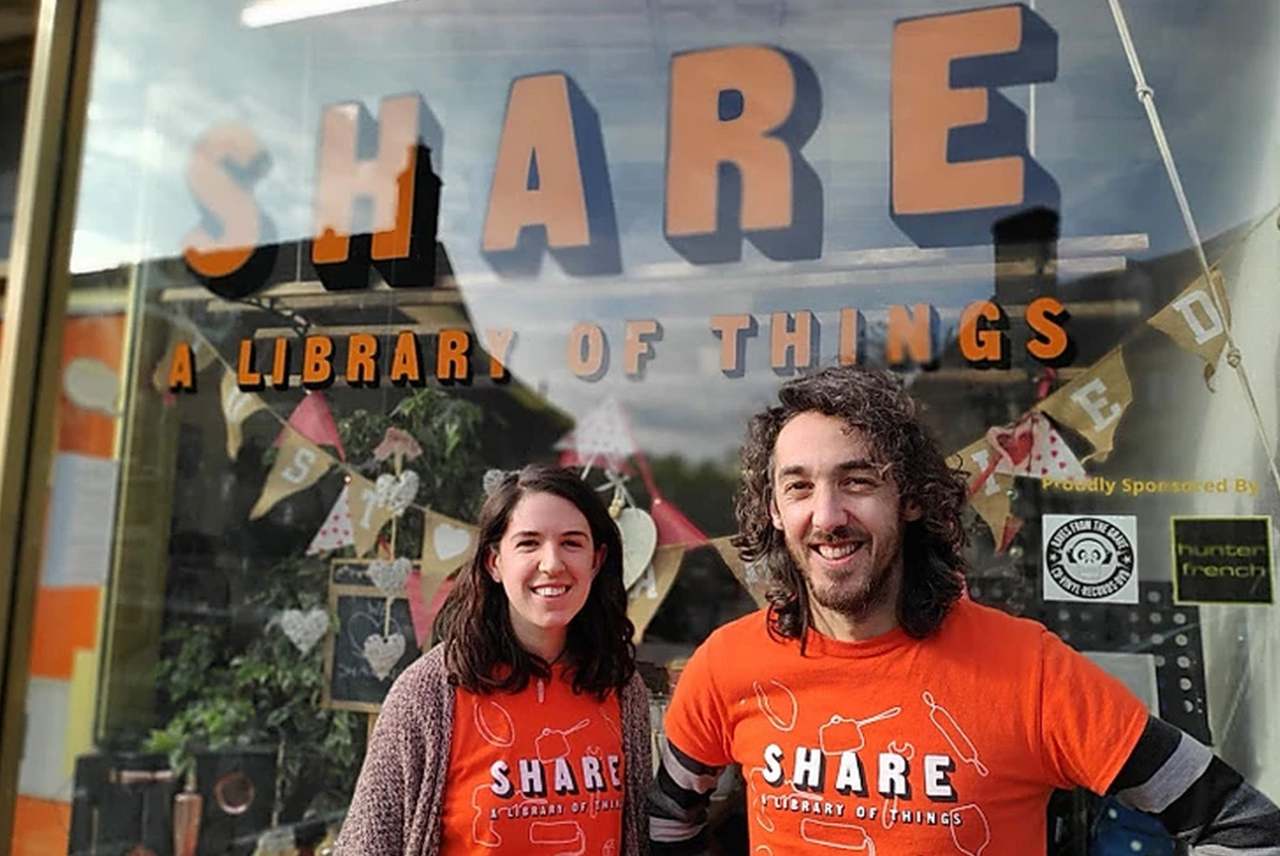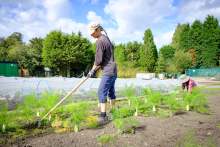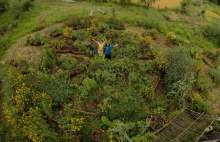With the recent Climate Assembly report to the UK government recommending people share and repair more instead of owning all their appliances, Libraries of Things (LoTs) look set to become permanent fixtures in the coming years. This will not only reduce the burden of ownership, offer environmental and financial benefits, but could also revitalise high streets across the country.
There are several Libraries of Things in existence in the UK, all proving a valuable resource in their area by not only saving people money and space in their own homes, but also by reducing material and manufacturing waste, reducing greenhouse gas emissions and cultivating resilient communities.
When every town has a LoT the impact will be massive. Take the impact recorded by the UK’s first high street LoT, SHARE:Frome, in one year between 2019 and 2020: It avoided 199 tonnes in greenhouse gas emissions, 254 tonnes of raw material use, 22 tonnes of manufacturing waste whilst saving its users £144,956 by borrowing items instead of buying them.
So how do we scale that impact up to towns across the land?
1. Assemble a team...
of passionate individuals who have the capacity to bring the project together. It takes hard work to create and sustain a successful LoT. Relying on too few people could make the project vulnerable. A committed team will create a resilient LoT.
2. Find premises.
LoTs have been known to exist in anything from a broom cupboard and a mobile shed to full blown high street shops. They also exist within other premises such as traditional libraries and community spaces.
3. Have a core stock of items people will want to borrow.
Power tools and larger items which people tend to use sporadically such as carpet cleaners, projectors and tents are all popular with existing LoTs. Engage with your community from the outset to find out what they would like to have access to.
4. Catalogue your items using a sophisticated inventory system such as MyTurn or Lend Engine.
By labelling each item, assigning them location codes you’ll find it easy to administer your stock, while your users will be able to easily browse online to see what’s available.
5. Create a Borrower’s Agreement and a Liability Waiver....
that users will agree to when they sign up to borrow.
6. Seek support from your local council.
Whether it be simply promotion on social media or helping secure premises, a supportive local council can really help you along the way. The good news is that with climate emergency declarations commonplace in local councils they will be keen to support exactly this sort of initiative.
7. Find fixers.
This won’t be hard. People love fixing items. Put a call out to your community and you’re bound to find people keen to help. Borrowed items will naturally occur breakages over time so having fixers on hand will ensure you can continue to reuse your stock for as long as possible.
Have at least one certified PAT tester. All electrical items will need to be continually PAT tested and records kept.
8. Get insured.
9. Create partnerships.
From finding local businesses to sponsor certain items through to partnering with brands you stock there’s always scope for collaboration.
10. Tell the world!
Well, your immediate community at least. Call out to the local community to donate items.
The more people who donate the more will feel invested in the project from the off and be likely to continue to use it and spread the word. You can also run events such as repair cafes and swap shops to continue community engagement whilst offering regular press releases to local media and being active online.




